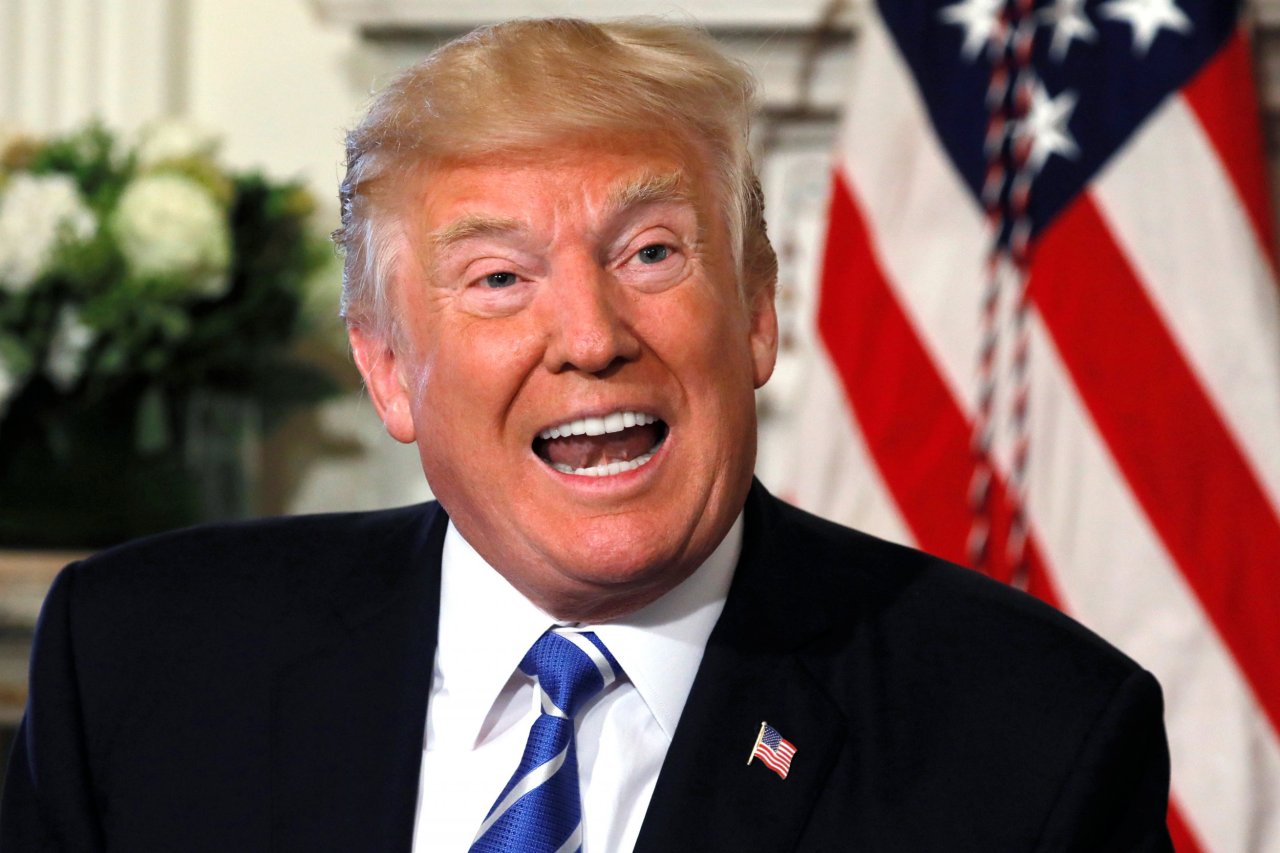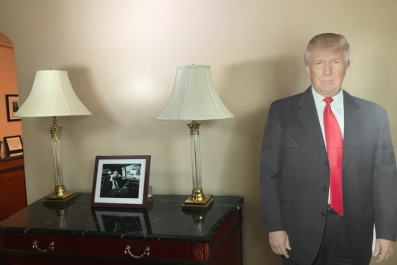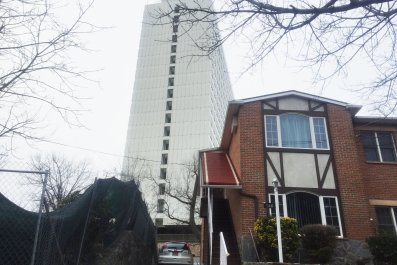After North Korea successfully detonated what it claims was a hydrogen bomb—and as the country prepares for yet another intercontinental missile test—the Trump administration's national security woes are intensifying. Yet even with harsh rhetoric coming from both sides, there is a semblance of a coherent strategy emerging from the U.S. and its key allies in the region. It's one that should be familiar to anyone who lived through the Cold War: containment and deterrence.
Consider the recent developments. Last week, in the wake of the North's latest missile tests, Japan said it would accelerate the deployment of its land-based missile defense system. In Seoul, where Moon Jae-in's administration had waffled over whether to deploy its U.S-supplied missile defense system, the new president firmly committed to it over the weekend. At the United Nations, U.S. ambassador Nikki Haley called for a vote on tougher economic sanctions, saying the world had to intensify its diplomatic push to contain the crisis. And Defense Secretary James Mattis, in carefully chosen words, said any North Korean attack on the U.S. or its allies would be met with a "massive" response.
Related: Is Kim Jong Un crazy?
Trump has said repeatedly that "all options" are on the table for dealing with North Korea, and the Pentagon has dutifully provided a range of military options for the president to consider. But a pre-emptive strike remains the very last option, administration sources say, asking for anonymity to discuss sensitive matters.
North Korea, of course, is not the Soviet Union. It doesn't have the power, let alone the imperial ambition. But to Jeffrey Bader, who ran Asia policy on the Obama administration's National Security Council (NSC), that doesn't mean U.S. strategy to counter Pyongyang needs to differ from the one that ultimately defeated Moscow. The steps the Trump administration took over the weekend are straight out of what Bader calls an "assertive policy of containment and deterrence."
These steps include overt and significant military pressure—the U.S. is sending additional hardware to the region, including Stealth fighters and nuclear powered subs—as well as the defensive measures Tokyo and Seoul are taking (the Aegis and THAAD missile defense systems in Japan and South Korea respectively). Senior U.S. military officials have also sent their allies reassurances that the full range of U.S. retaliatory options and protections are available if either are threatened. The overall containment strategy also includes significantly greater economic pressure, which is what Haley now seeks at the U.N.
One aspect of Cold War era relations is now absent however. The U.S. often talked with Moscow, both to defuse imminently dangerous situations (the Cuban missile crisis in 1961, for instance) and to deal with long-term strategic issues, like the size of each country's respective nuclear arsenals. But Trump, for the moment anyway, seems to be in no mood for talks, even though some in the administration say they may eventually be useful. In fact, to the chagrin of his national security team, Trump recently chastised South Korea's President Moon for "appeasement," simply because during his campaign he called for deeper economic ties and a dialogue with Pyongyang. Bashing a close ally during an escalating crisis—and threatening to pull out of a bilateral free trade agreement between the U.S. and South Korea on top of it—"just made no sense," says one Trump adviser, who also asked for anonymity to discuss sensitive issues.
On occasion, the U.S. president has actually said he'd be open to talks with Kim Jong Un. And while there are no current plans for that to happen, some in the administration think a big diplomatic push may eventually develop. Bader, the former NSC staffer, believes Washington should offer a deal, either via the Chinese (to keep Beijing involved in a constructive way) or even directly. In return for full denuclearization, he says, the U.S. and its allies could grant Pyongyang full diplomatic recognition, an end to all economic sanctions and a peace treaty to finally replace the armistice agreement that ended the Korean war.
The North is not likely to agree to that; Kim views his nuclear program as his ultimate insurance policy. But by making a bold, good faith diplomatic effort to end the standoff with Pyongyang, Washington would be able to lean on fellow U.N. Security Council members Beijing and Moscow to join in (rather than flout) a comprehensive containment and deterrence strategy. It would, as Bader says, "give Washington the moral high ground," and put the Chinese and Russians in an awkward position.
It's not inconceivable that the administration could eventually pursue that path. As one Trump staffer puts it, "all options' doesn't just mean military action. All options means diplomacy, too."















